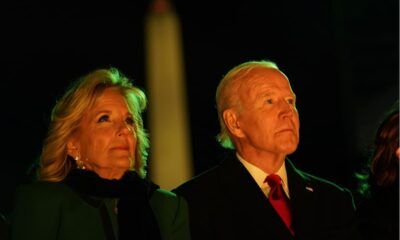INTERNACIONAL
Biden admin sanctions Israel national security minister ally, reportedly weighs expanding to IDF unit
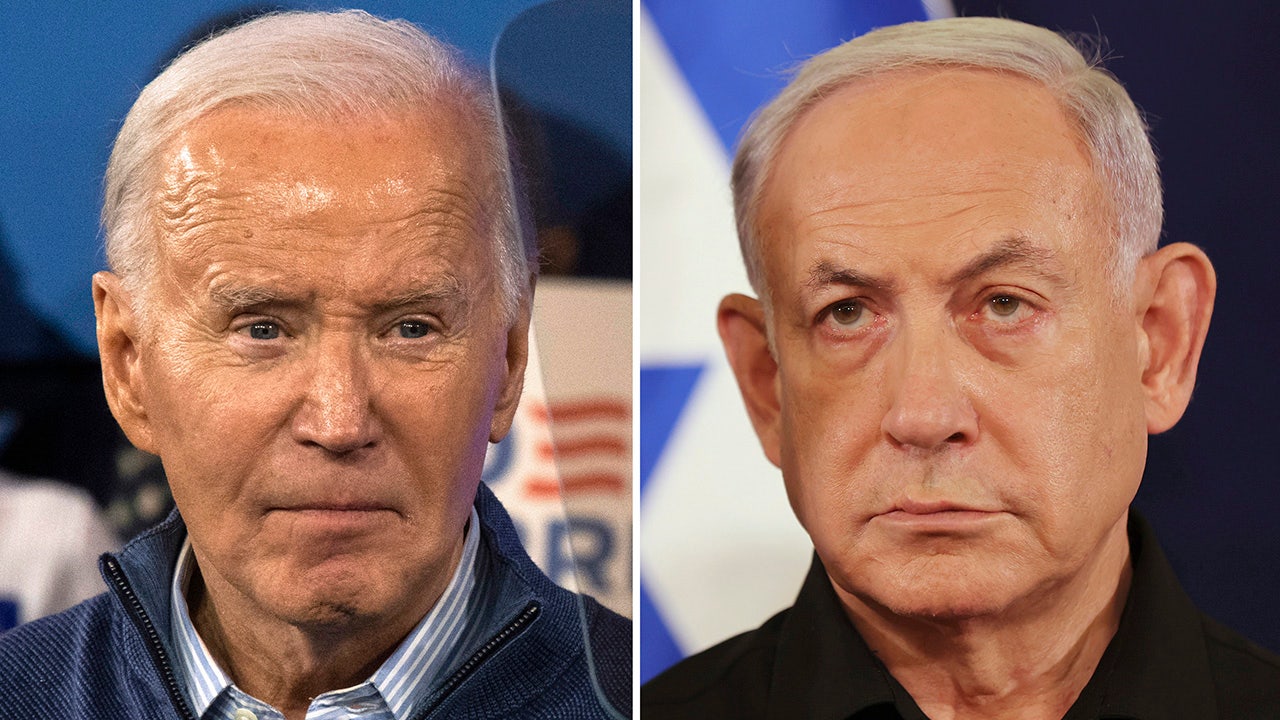
The Biden administration could announce sanctions against an Israel Defense Forces (IDF) battalion for alleged human rights violations in the West Bank before the Oct. 7 attack on Israel by Hamas-led terrorists, according to reports.
Axios reported that U.S. Secretary of State Antony Blinken could announce the sanctions against IDF battalion «Netzah Yehuda» within days, marking the first time the U.S. will have placed sanctions on military units operated by Israel.
If sanctions are imposed, the battalion and its members would no longer receive any type of training or assistance from the U.S. military, sources reportedly told the publication.
The U.S. is prohibited under the Leahy Law, from providing any sort of foreign aid or defense department training to countries responsible for alleged human rights violations based on credible information.
WHITE HOUSE ANNOUNCES NEW SANCTIONS ON IRAN FOLLOWING ATTACK AGAINST ISRAEL: ‘THE PRESSURE WILL CONTINUE’
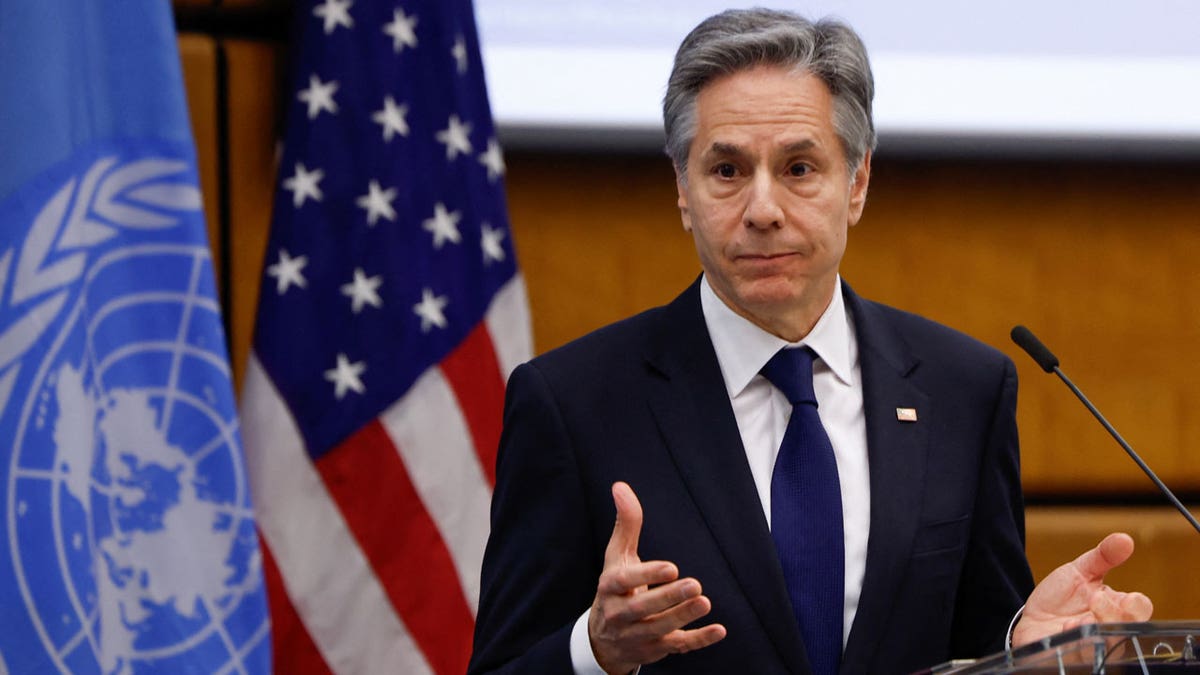
U.S. Secretary of State Antony Blinken delivers remarks at the 67th Session of the U.N. Commission on Narcotic Drugs at Vienna International Center, in Vienna, Austria, on March 15, 2024. (Reuters/Evelyn Hockstein/Pool)
Fox News Digital reached out to the U.S. State Department and White House but did not immediately hear back.
While speaking to reporters on Friday, Blinken was asked about Israel’s violations of human rights in the West Bank and recommendations made by his department to cut military aid to certain Israeli units.
Blinken started by saying the Leahy Law was important and applied across the board.
BIDEN SILENT AFTER BEING PRESSED ABOUT IRANIAN STRIKE AGAINST ISRAEL: ‘WHAT NOW?’

U.S. Secretary of State Antony Blinken (L) meets with Israeli Prime Minister Benjamin Netanyahu (R) in Tel Aviv, Israel on Nov. 3, 2023. (Amos Ben-Gershom (GPO)/Anadolu via Getty Images)
«When we’re doing these investigations, these inquiries, it’s something that takes time, that has to be done very carefully both in collecting the facts and analyzing them – and that’s exactly what we’ve done,» he said. «And I think it’s fair to say that you’ll see results very soon. I’ve made determinations; you can expect to see them in the days ahead.»
On Friday, the U.S. imposed sanctions on an ally of Israel’s national security minister and two entities that raised money for Israeli men who allegedly committed settler violence. The new sanctions came in addition to others placed on five settlers and two unauthorized outposts earlier this year. The increased sanctions also show growing frustration of Israeli Prime Minister Benjamin Netanyahu by the U.S.
Friday’s sanctions will reportedly freeze U.S. assets held by those targeted while also barring Americans from dealing with them.
HOUSE TEES UP 17 BILLS RELATED TO IRAN/ISRAEL FOR THIS WEEK
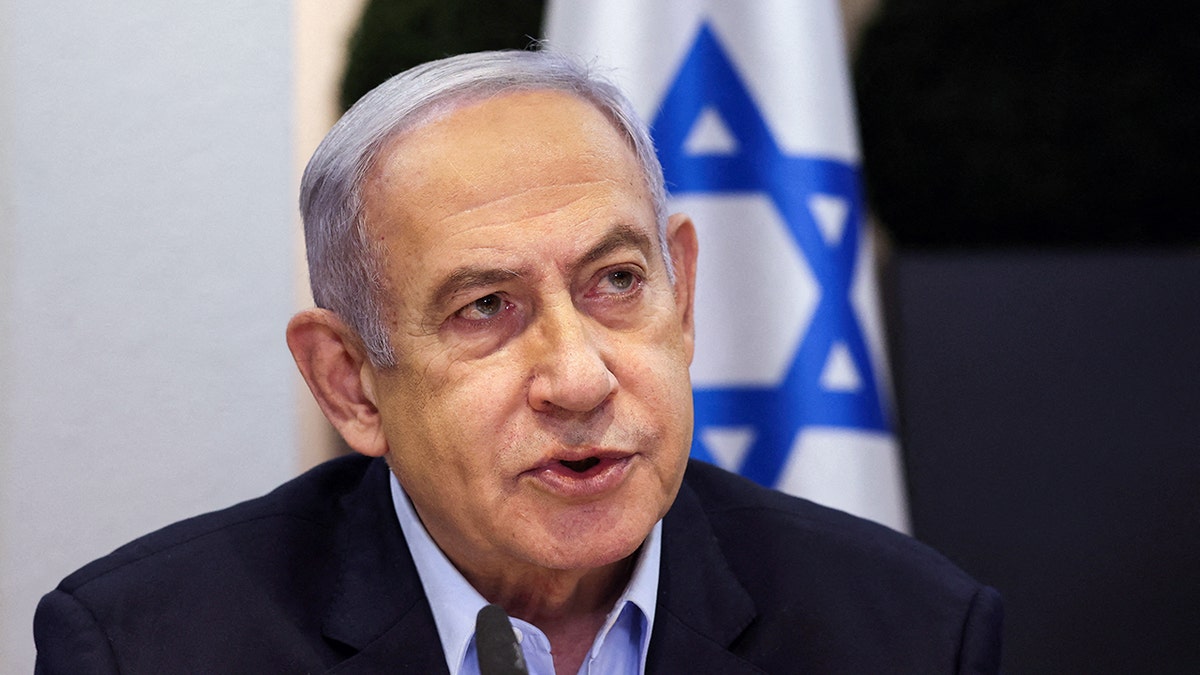
FILE PHOTO: Israeli Prime Minister Benjamin Netanyahu convenes the weekly cabinet meeting at the Defence Ministry in Tel Aviv, Israel, January 7, 2024. (REUTERS/Ronen Zvulun/Pool/File Photo)
Right-wing members of Netanyahu’s governing coalition that is pushing to expand Jewish settlements along with the annexation of the West Bank are reportedly upset with the Biden administration for making moves against the Israeli settlers.
Also adding fuel to the fire is the tension between Israel and Washington caused by the latter urging Israel to restrain themselves from attacking Iran.
One of the individuals sanctioned by the U.S. was Ben-Zion Gopstein, the founder and leader of the right-wing group Lehava. The group does not support Jewish assimilation with non-Jews and has about 5,000 members.
RADICAL IRANIAN PROVINCE HIT BY ISRAEL HIGHLIGHTS REGIME’S WEAKNESS
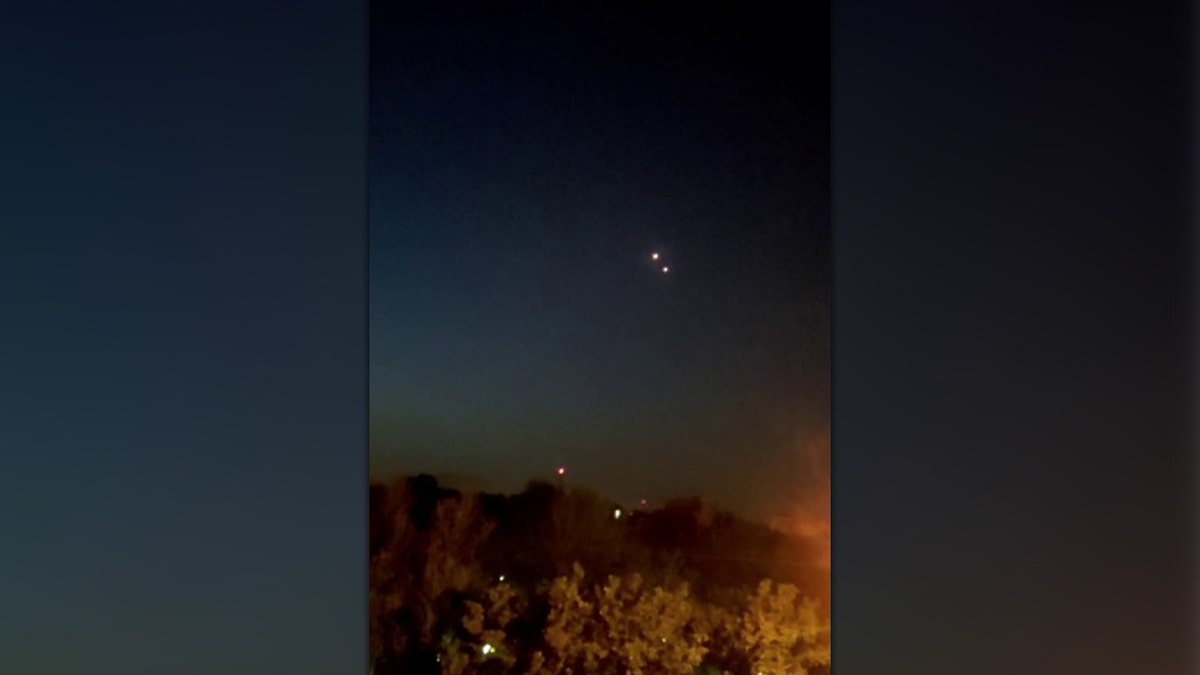
Israel launched limited strikes against Iran on Friday, April 19. (IRGC)
«Under Gopstein’s leadership, Lehava and its members have been involved in acts or threats of violence against Palestinians, often targeting sensitive or volatile areas,» State Department spokesperson Matthew Miller said in a statement obtained by Reuters.
Miller warned that additional steps would be taken if Israel does not act to prevent extremist attacks as violence continues to escalate in the West Bank.
The European Union also agreed to impose sanctions against Lehava and other groups.
HOUSE OVERWHELMINGLY PASSES $26 BILLION AID TO ISRAEL, GAZA AS TENSIONS WITH IRAN ESCALATE
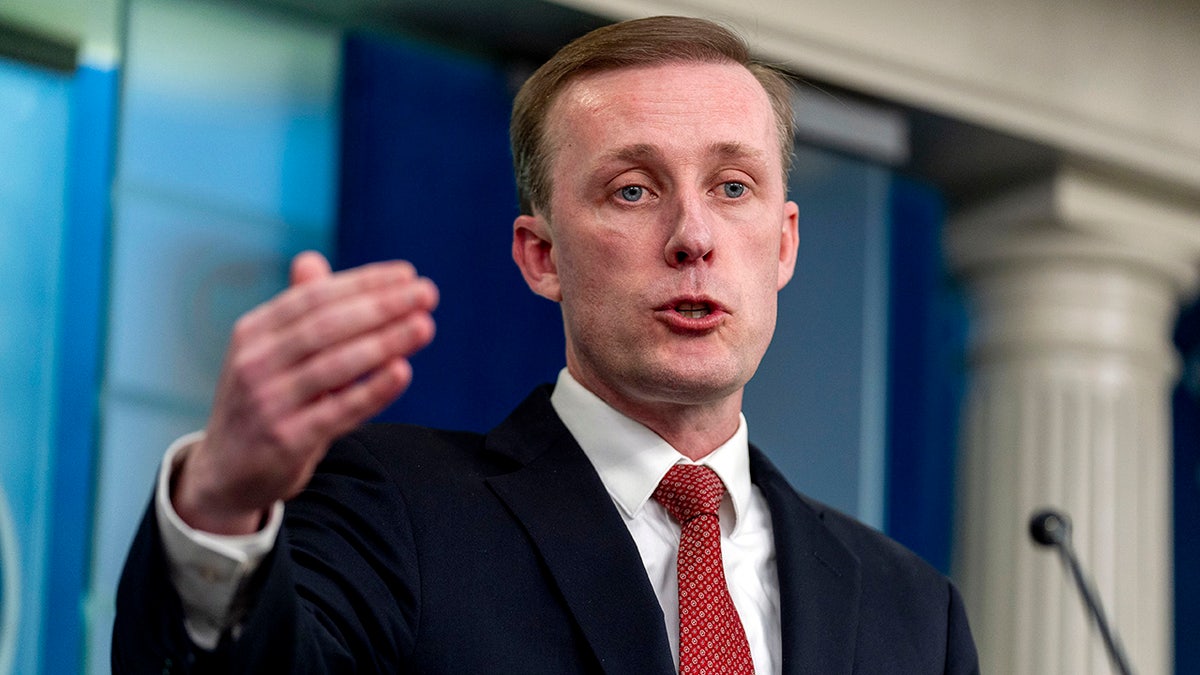
White House national security adviser Jake Sullivan speaks during a press briefing at the White House in Washington, Monday, March 18, 2024. (AP Photo/Andrew Harnik)
But the U.S. is not just targeting Israel. In fact, last week, White House National Security Advisor Jake Sullivan announced sanctions would be placed against Iran after its regime attacked Israel last Saturday.
The sanctions were announced as Republicans criticized the Biden administration for not being tough enough on Iran, pointing to a waiver extended by the White House in November 2023 that released $10 billion of previously escrowed funds to Iran.
Sullivan said that the actions the U.S. is taking will «continue a steady drumbeat of pressure to contain and degrade Iran’s military capacity and effectiveness and confront the full range of its problematic behaviors.»
CLICK HERE TO GET THE FOX NEWS APP
«Over the last three years, in addition to missile and drone-related sanctions, the United States has sanctioned over 600 individuals and entities connected to terrorism, terrorist financing and other forms of illicit trade, horrific human rights abuses, and support for proxy terrorist groups, including Hamas, Hezbollah, the Houthis, and Kataib Hezbollah,» the statement added.
«The pressure will continue. We will not hesitate to continue to take action, in coordination with allies and partners around the world, and with Congress, to hold the Iranian government accountable for its malicious and destabilizing actions.»
Fox News Digital’s Andrea Vacchiano and Reuters contributed to this report.
INTERNACIONAL
Arremetió con su camioneta dentro un shopping en Estados Unidos y atropelló gente: cinco heridos

«Fue un desastre», los testimonios de los compradores del shopping impactado con una camioneta
-
POLITICA2 días ago
El descargo de Longobardi tras su salida de Radio Rivadavia: «Me hizo acordar cuando Cristina ejecutó mi despido en Radio 10»
-
INTERNACIONAL2 días ago
Atropello múltiple en un mercado de Navidad en Alemania: al menos dos muertos y más de 60 heridos
-
POLITICA2 días ago
Guillermo Castello: «Kicillof está utilizando la caja de la provincia para posicionarse políticamente»
-
POLITICA1 día ago
Nisman: el Gobierno acepta el pedido del fiscal y levanta el secreto sobre los espías inorgánicos de la SIDE y el Ejército
-
CHIMENTOS1 día ago
Se confirmó el escandaloso motivo de la crisis entre Javier Milei y Yuyito González: «Él estaba cerca de Graciela Alfano»
-
POLITICA9 horas ago
El Gobierno reveló los pasos para salir del cepo cambiario y alcanzar la “flotación limpia”: cuáles son





